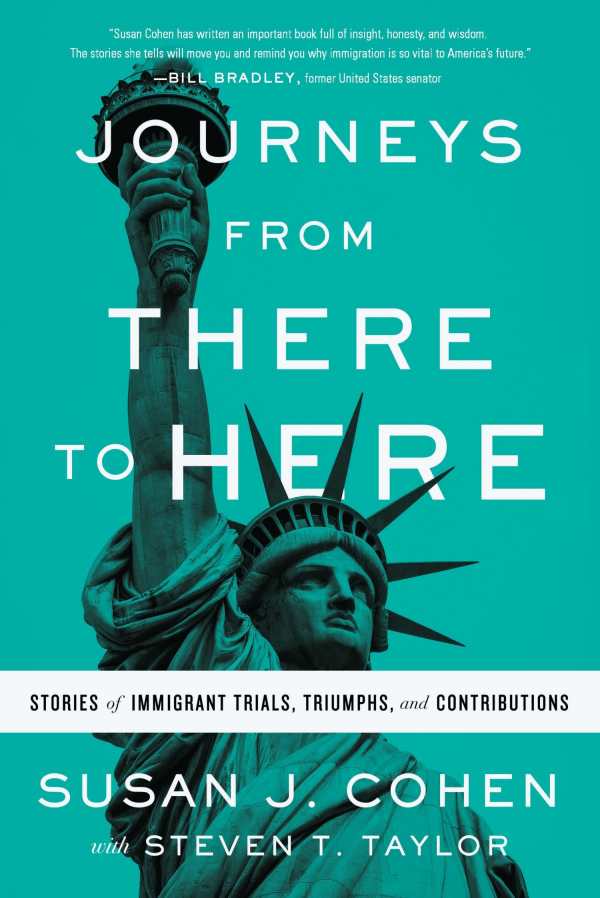Journeys from There to Here
Stories of Immigrant Trials, Triumphs, and Contributions
Journeys from Here to There is an enlightening social science text that asserts that welcoming immigrants is necessary to America’s progress and survival.
Immigration attorney Susan J. Cohen’s humane social science book Journeys from There to Here draws from the heartwrenching stories of eleven clients to argue that immigration is good for the US.
Immigrants, the book asserts, are the backbone of American society. Aiming to show how they contribute to and strengthen the economy and enhance cultural, social, medical, and scientific institutions, and to show how their struggles and values mirror those of people born in the US, the text covers the struggles that eleven clients faced in their immigration processes—and before they came to the US.
Indignation is generated as the book covers past instances of political persecution in its stories; several of the covered individuals sought asylum in the United States. There’s an instance of persecution by the Chinese government for violating the one-child policy, in which testimonials were delivered before an adversarial judge over a four-year period; in another case, a Tutsi woman who was raped and terrorized during the Rwandan genocide forwards an asylum case, but loses due to a technicality (the case was later reopened following the revelation of new evidence).
Discriminatory treatments from USCIS officials and immigration judges; red tape issues, including lost paperwork and DNA testing; and inept lawyers who did little to navigate the complex legal system on immigrants’ behalf are also covered. A sense of injustice forms. Indeed, only a few of the covered clients progressed through the immigration juggernaut without significant roadblocks, save for the “uncertainty, insecurity, and sense of always looking over your shoulder.”
Still, these in-depth case studies are limited to showing how their specific legal hurdles were navigated, and how strategic immigration defenses were built for the clients they represent. Thus, Cohen covers the particulars of how her team reviewed the personal histories of each client, researching their origin nations and the policies that provoked asylum requests, calling on experts and witnesses for testimonies, and arranging for those from government and academic circles to provide testimonies, too. The hard facts of the process result in a sense of urgency.
In the end, this is a book that’s more about a few people who emigrated to the US than it is a legal text, though. It’s compassionate and empathetic in tone as it zooms in on, and humanizes, individual clients in order to support its larger arguments for welcoming immigrants in general. It names the significant contributions that each of the eleven people made to education, science, and social advocacy; these are further used to suggest more welcoming immigration policies as a rule: “In my experience, immigrants are among the hardest-working people I’ve ever met, some holding multiple jobs, and so many instill in their children a strong work ethic, love and respect for education, and high ethical values.”
Designed to change people’s perceptions of immigrants, Journeys from Here to There is a social science text that uses eleven case studies to assert that welcoming immigrants is necessary to a nation’s progress and survival.
Reviewed by
Nancy Powell
Disclosure: This article is not an endorsement, but a review. The publisher of this book provided free copies of the book and paid a small fee to have their book reviewed by a professional reviewer. Foreword Reviews and Clarion Reviews make no guarantee that the publisher will receive a positive review. Foreword Magazine, Inc. is disclosing this in accordance with the Federal Trade Commission’s 16 CFR, Part 255.

